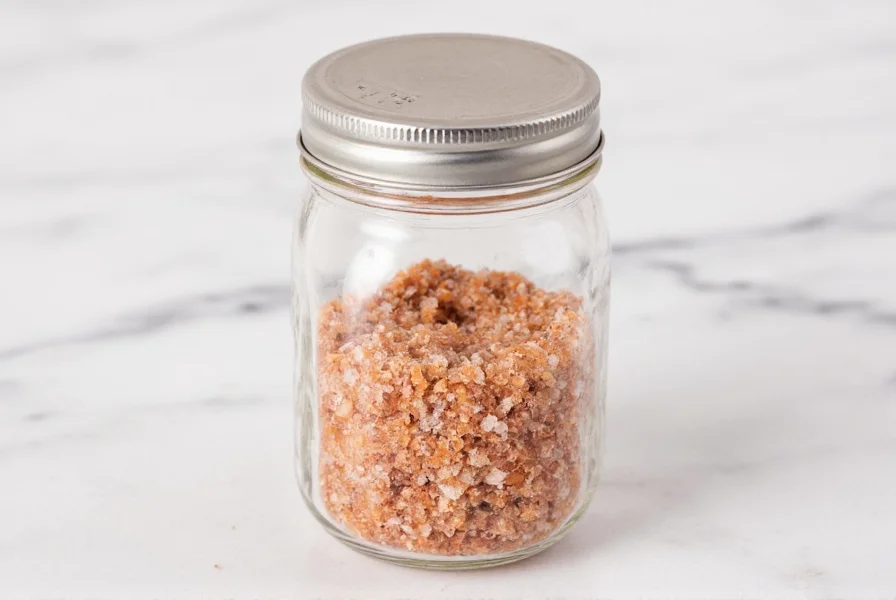
What Is Smoked Salt?
Smoked salt is exactly what it sounds like — salt that's been infused with smoke! But don't let the simplicity of its name fool you. This flavor powerhouse isn't just salty; it brings the warmth, depth, and aroma of wood-fired cooking into your kitchen, minus the campfire.
Made by cold-smoking salt crystals over natural wood fires (usually from hardwoods like hickory, oak, or mesquite), smoked salt absorbs the smoky essence without melting. The result? Crystals that carry a subtle to bold smokiness, depending on how long they've been smoked.
Whether you're a barbecue fanatic, a grilled veggie lover, or someone who craves that mysterious "something extra" in every bite, smoked salt might be your new best friend in the spice rack.
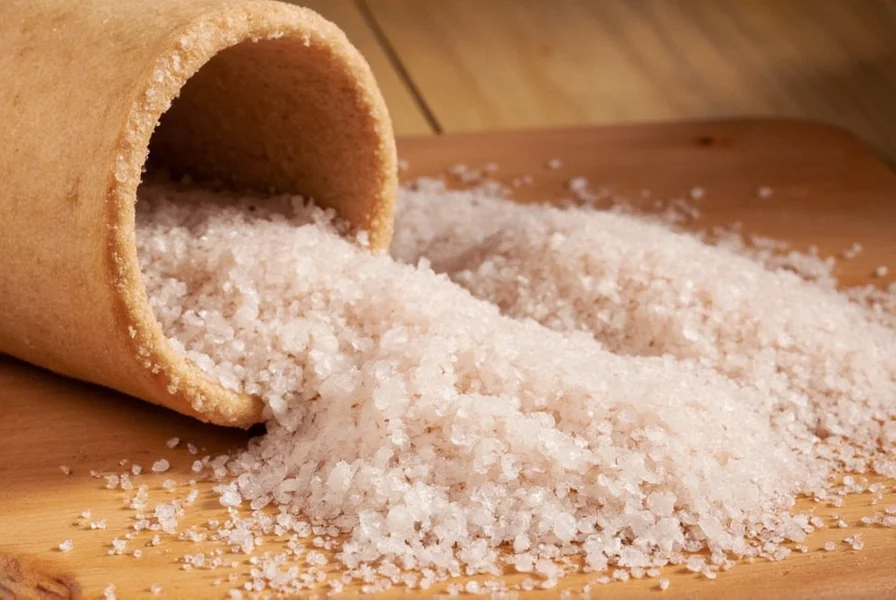
How Is Smoked Salt Made?
The process of making smoked salt is part science, part art. Let's break it down:
- Base Salt: Most commonly, producers start with sea salt or coarse kosher salt. These types have larger granules that absorb and retain smoky flavors better than finer salts.
- Wood Choice: The type of wood used for smoking plays a huge role in the final flavor profile. For example:
- Hickory: Strong, bacon-like notes.
- Oak: Mild, balanced smoke with slight sweetness.
- Mesquite: Intense, almost spicy smokiness.
- Alder: Light and fruity, ideal for seafood and delicate dishes.
- Smoking Process: Salt is placed in a chamber and exposed to low heat (often below 200°F) and slow-burning smoke from the chosen wood. This can take anywhere from a few hours to several days, depending on desired intensity.
- Drying & Packaging: After smoking, the salt is dried to remove any moisture and then packaged to preserve freshness and flavor.
Unlike liquid smoke, which can be harsh or artificial tasting, real smoked salt delivers a clean, earthy, and aromatic depth that elevates everything it touches.
Types of Smoked Salt
| Type | Wood Used | Flavor Profile | Best For |
|---|---|---|---|
| Hickory Smoked Salt | Hickory | Strong, rich, bacon-like smokiness | Meat rubs, hearty soups, BBQ sauces |
| Oak Smoked Salt | Oak | Mild, sweet, and slightly nutty | Vegetables, cheese pairings, everyday seasoning |
| Mesquite Smoked Salt | Mesquite | Intense, spicy, robust | Grilled meats, Tex-Mex dishes, chili |
| Alderwood Smoked Salt | Alder | Delicate, slightly sweet, and earthy | Fish, poultry, salads, sushi |
| Applewood Smoked Salt | Apple | Sweet, fruity, and mildly smoky | Pork, desserts, glazes |
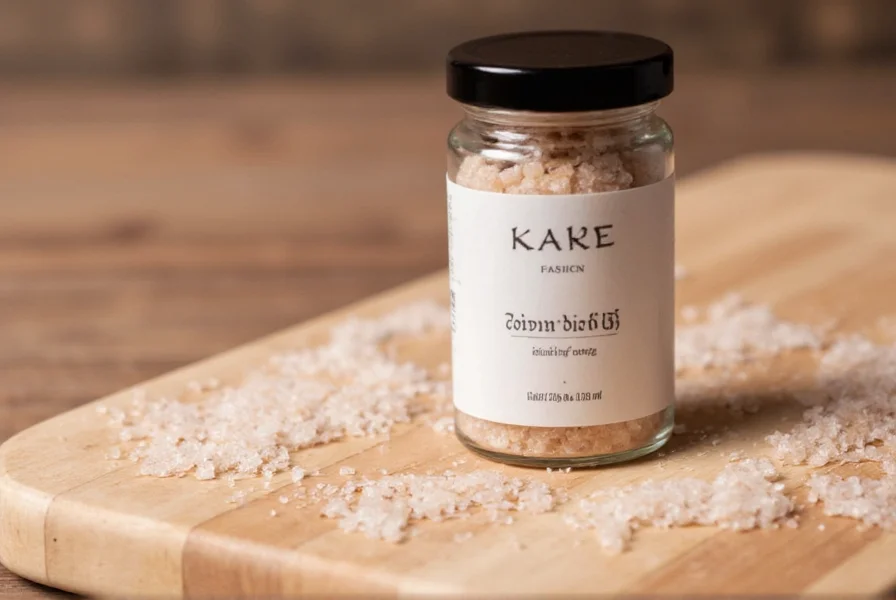
Flavor Profiles & Pairing Tips
Think of smoked salt as your culinary secret weapon. Its complex flavor opens up a whole world of pairing possibilities:
- Bold Meats: Think ribs, brisket, or grilled steak — hickory or mesquite salt adds that deep, savory punch.
- Fish & Seafood: Try alderwood salt on salmon or scallops for a gentle, refined smokiness.
- Veggies: Roasted mushrooms, eggplant, or zucchini love a sprinkle of oak or applewood salt.
- Cheese: Pair a smoked gouda with some applewood salt, or dust soft goat cheese for an instant upgrade.
- Chocolate & Desserts: Yes, really! A pinch of hickory salt on dark chocolate mousse or caramel ice cream creates a surprising yet addictive contrast.
Pro tip: use sparingly. Like most strong flavors, a little goes a long way!
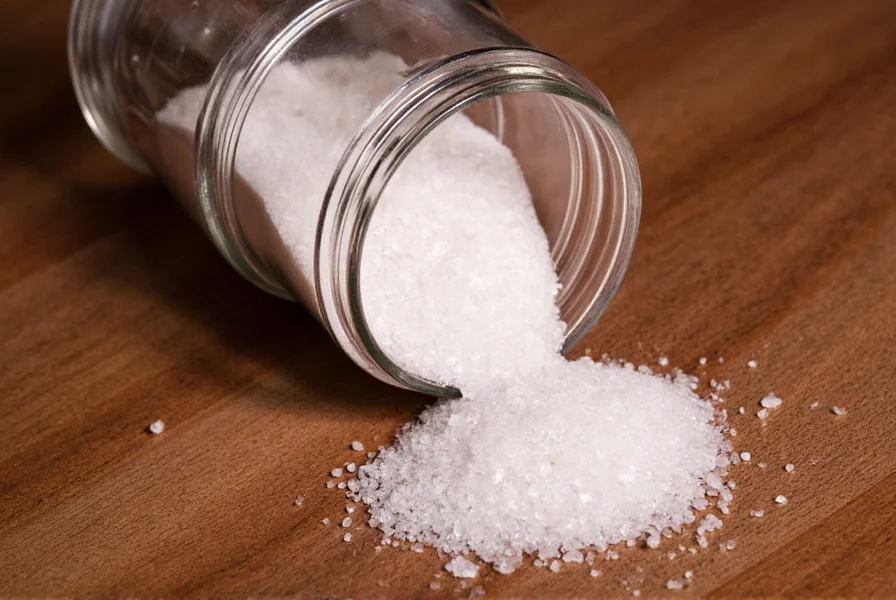
Uses in Cooking
Now that we know what smoked salt is and how it's made, let's dive into the fun part — using it in real recipes!
- As a Finishing Salt: Sprinkle over finished dishes to preserve its delicate texture and maximum flavor impact. Ideal for salads, avocado toast, and roasted veggies.
- In Marinades & Rubs: Mix into dry rubs for meats, fish, or tofu to infuse smokiness deep into the protein before grilling or roasting.
- Seasoning Soups & Stews: Adds depth to broths and heartier stews — try adding during the last 10 minutes of cooking.
- Baking & Sweet Treats: Works wonders in chocolate chip cookies, salted caramel anything, or even in coffee blends for a smokey twist.
- Homemade Snacks: Toss popcorn, nuts, or homemade chips with a touch of smoked salt for gourmet-level snacks.
And here's the kicker: unlike regular salt, smoked salt gives both salinity and a distinct aromatic layer — turning even the simplest dish into something unforgettable.
Buying Guide: How to Choose the Best Smoked Salt
If you're ready to add some smoke to your life, here's how to pick the perfect jar:
Things to Look For
- 100% Natural Ingredients: Make sure it's pure salt and smoke — no added preservatives, anti-caking agents, or synthetic flavors.
- Wood Type: Check which wood was used. If you're unsure, go for oak or alderwood — versatile and crowd-friendly.
- Crystal Size: Coarser grains hold more smoke flavor and are great for finishing, while finer varieties blend well into rubs and sauces.
- Packaging: Airtight containers keep the salt fresher longer. Mason jars, tins, or resealable bags are ideal.
Top Picks: Our Favorite Smoked Salt Brands
| Product | Features | Advantages | Use Cases | Who Should Buy | Best Occasions |
|---|---|---|---|---|---|
| Bigelow Smoked Sea Salt | Light hickory smoke, fine grain | Great value, consistent flavor | Cooking, baking, rubs | Beginners, home cooks | Everyday meals |
| Kalahari Smoked Sea Salt | Natural alderwood smoke, large crystals | High quality, eco-friendly packaging | Finishing, seafood, charcuterie | Chefs, foodies | Dinner parties, gourmet dishes |
| Redmond Real Smoked Salt | Mesquite smoke, coarse texture | Organic, unrefined, hand-harvested | BBQ, chili, grilled meats | Outdoor chefs, grill lovers | Summer barbecues |
| The Spice Hunter Smoked Salt | Oakwood smoked, medium grain | Trusted brand, affordable | All-purpose seasoning | Families, beginners | Weeknight dinners |
| Korean BBQ Company Smoked Salt | Custom blend of woods, flaky texture | Unique, artisanal flavor | Marinades, Korean dishes | Korean cuisine fans | Themed dinners, fusion dishes |
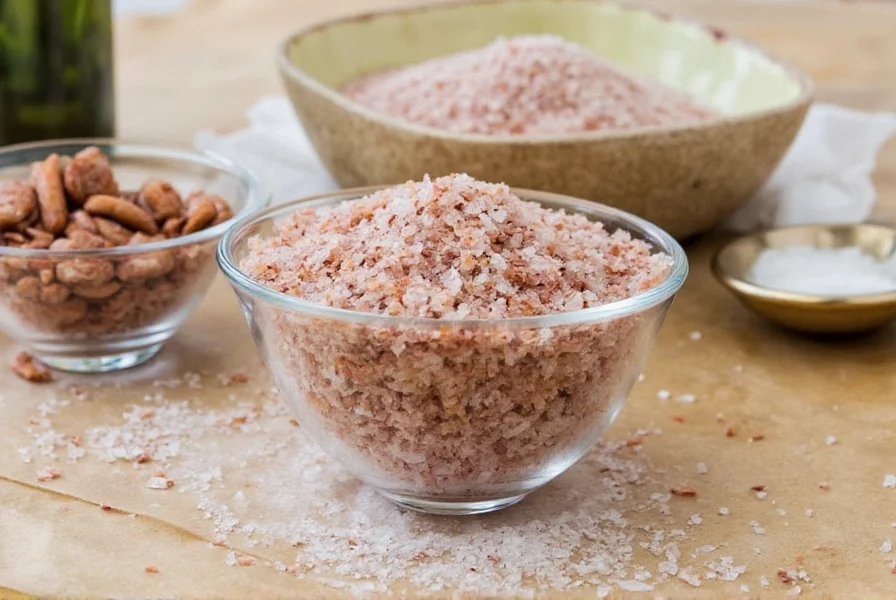
Storage Tips for Maximum Flavor
Like any good spice, smoked salt needs proper care to keep its magic alive. Here's how to store it like a pro:
- Keep It Dry: Moisture can cause clumping and dilute flavor. Always store in a cool, dry place away from humidity.
- Airtight Containers: Use glass jars with tight lids or vacuum-sealed bags to prevent exposure to air and odors.
- Out of Direct Sunlight: UV rays can degrade the delicate smoke compounds. A kitchen cabinet or pantry works perfectly.
- No Refrigeration Needed: Unless in a very humid environment, there's no need to refrigerate.
Smoked Salt vs Other Salts: A Comparison
To help you decide when to reach for smoked salt, here's how it stacks up against other common salts:
| Type | Texture | Flavor | Best Use | Price Range |
|---|---|---|---|---|
| Smoked Salt | Varies (fine to coarse) | Earthy, smoky, layered | Finishing, marinades, BBQ | Moderate |
| Sea Salt | Coarse | Briny, clean, mineral-rich | Finishing, baking | Low to moderate |
| Kosher Salt | Coarse, flaky | Clean, pure saltiness | Cooking, meat preparation | Low |
| Fleur de Sel | Moist, soft crystals | Complex, oceanic, buttery | Gourmet finishing | High |
| Himalayan Pink Salt | Crunchy, pink crystals | Mineral-forward, mild saltiness | Presentational dishes, grinders | Moderate |
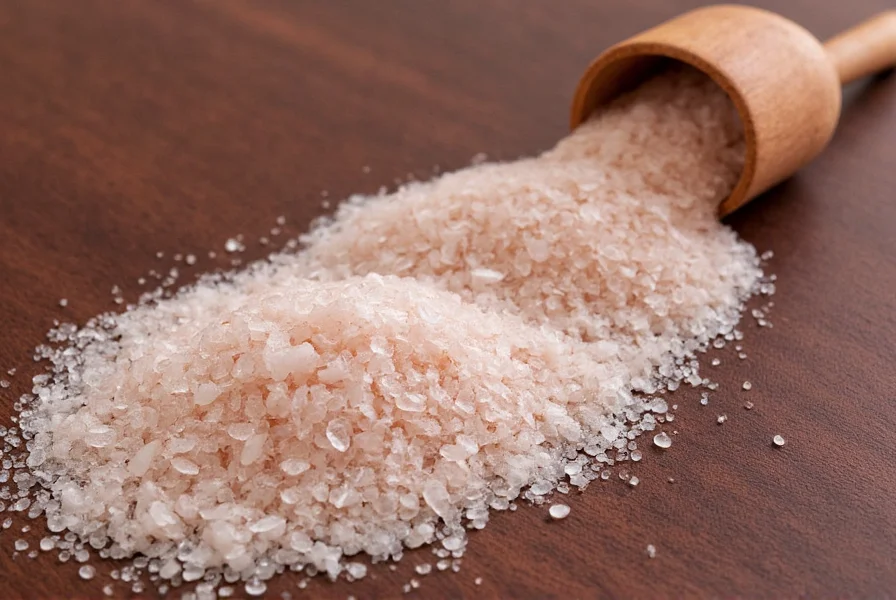
Frequently Asked Questions
What is smoked salt made from?
Smoked salt starts as regular sea salt or kosher salt that's then cold-smoked over natural hardwoods like hickory, oak, mesquite, or alder. The salt crystals absorb the smoke essence without melting, creating a product that delivers both saltiness and smoky flavor in one ingredient.
How is smoked salt different from regular salt?
While regular salt provides only saltiness, smoked salt offers a dual benefit: saltiness plus smoky flavor. The smoking process imparts complex wood notes (like hickory, oak, or mesquite) that regular salt lacks. This makes smoked salt a flavor enhancer rather than just a seasoning.
Can I use smoked salt instead of regular salt in all recipes?
Not exactly. Smoked salt works best as a finishing salt or in recipes where smoky flavor complements the dish. For basic salt needs in baking or where salt is purely for seasoning (not flavor), regular salt is better. Think of smoked salt as a specialty ingredient that adds both salt and flavor dimension.
Is smoked salt healthier than regular salt?
Nutritionally, smoked salt contains the same sodium content as regular salt. The smoking process adds flavor compounds but doesn't significantly change the nutritional profile. The health benefit comes from potentially using less salt overall since the smoky flavor enhances dishes with less sodium needed for satisfaction.
What's the difference between smoked salt and liquid smoke?
Smoked salt is actual salt crystals that have absorbed natural wood smoke, while liquid smoke is a concentrated liquid made by capturing smoke in water. Smoked salt provides clean, nuanced smokiness without the sometimes harsh or artificial taste of liquid smoke, and it also provides necessary salt content that liquid smoke lacks.
How long does smoked salt last?
When stored properly in an airtight container away from moisture and sunlight, smoked salt can maintain its flavor for 1-2 years. While salt itself doesn't spoil, the delicate smoky compounds can gradually dissipate over time. For best flavor, use within one year of opening.
Can I make smoked salt at home?
Yes, but it requires specific equipment. You'll need a smoker (even a small electric one works), coarse sea salt, and wood chips of your choice. Place salt in a non-reactive container in the smoker at low temperature (under 200°F) for 2-8 hours depending on desired intensity. Stir occasionally for even smoking. Let cool completely before storing.
Which smoked salt is best for beginners?
For beginners, oak smoked salt is the most versatile choice. It has a mild, balanced smokiness that works with almost anything—vegetables, meats, cheeses, and even some desserts. It's not as overpowering as hickory or mesquite but still delivers noticeable flavor enhancement without dominating your dish.
Conclusion
So, what is smoked salt? More than just salt with a twist, it's a flavor game-changer. Whether you're a professional chef or someone who loves experimenting in the kitchen, this simple ingredient can transform ordinary meals into memorable ones.
From its traditional making methods to the variety of woods that shape its flavor, smoked salt offers versatility, depth, and a dash of drama. With the right kind in your pantry and a few clever tips under your belt, you'll be sprinkling magic onto everything from grilled chicken to chocolate truffles.
Ready to light up your dishes? Grab a jar, get creative, and enjoy the smoky goodness that smoked salt brings to your table.
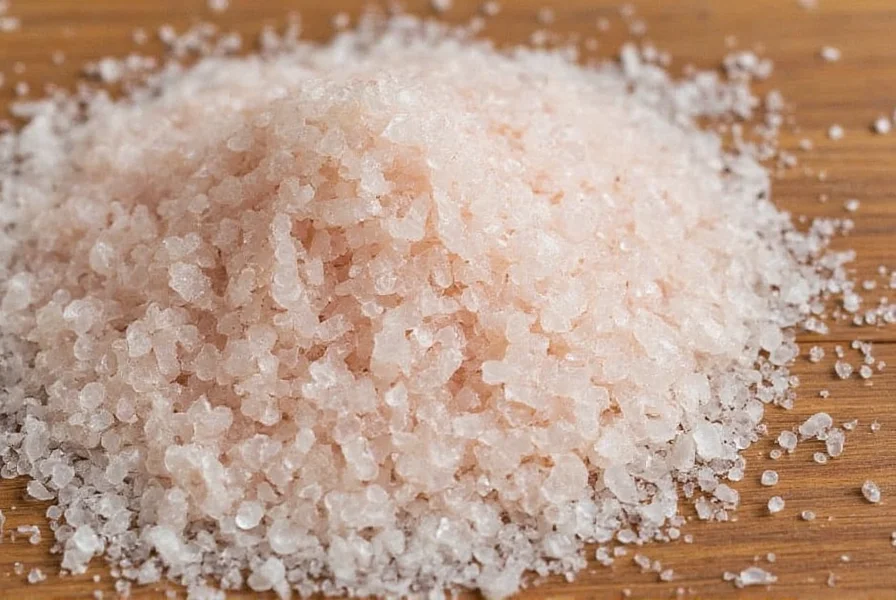

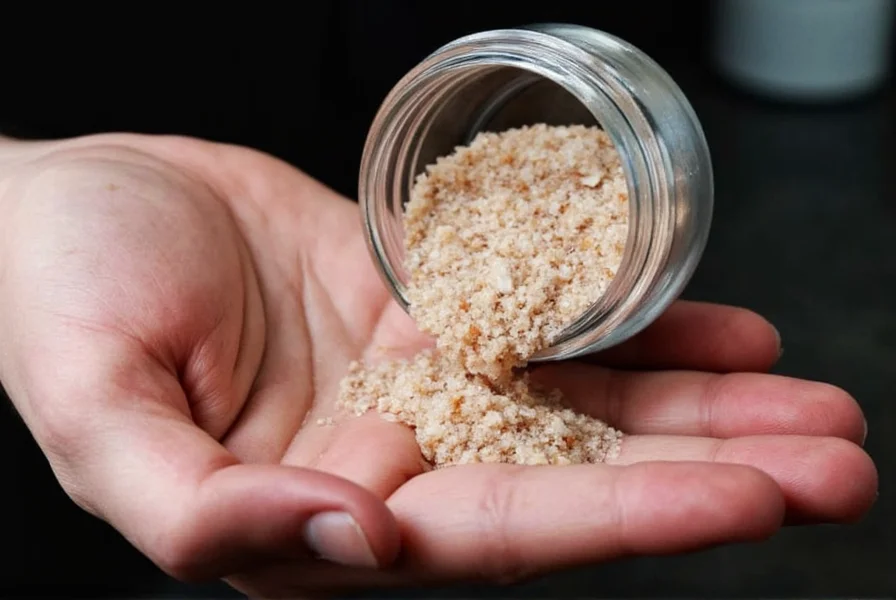









 浙公网安备
33010002000092号
浙公网安备
33010002000092号 浙B2-20120091-4
浙B2-20120091-4